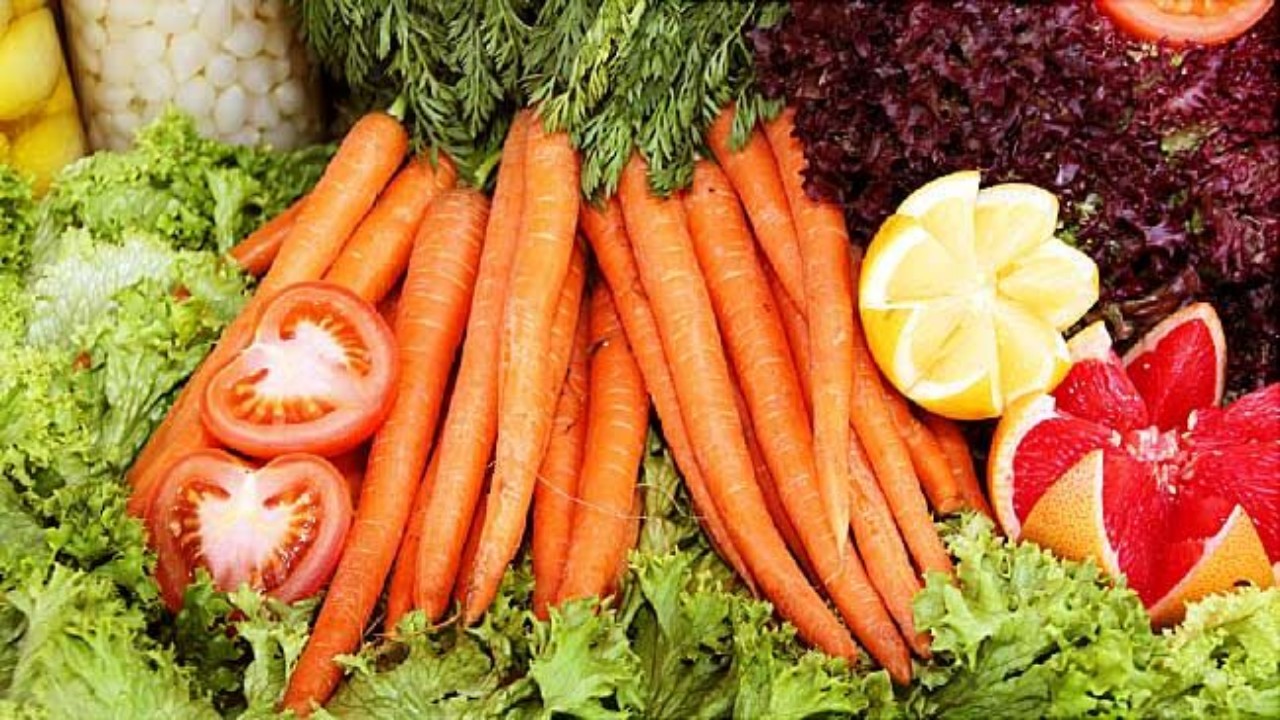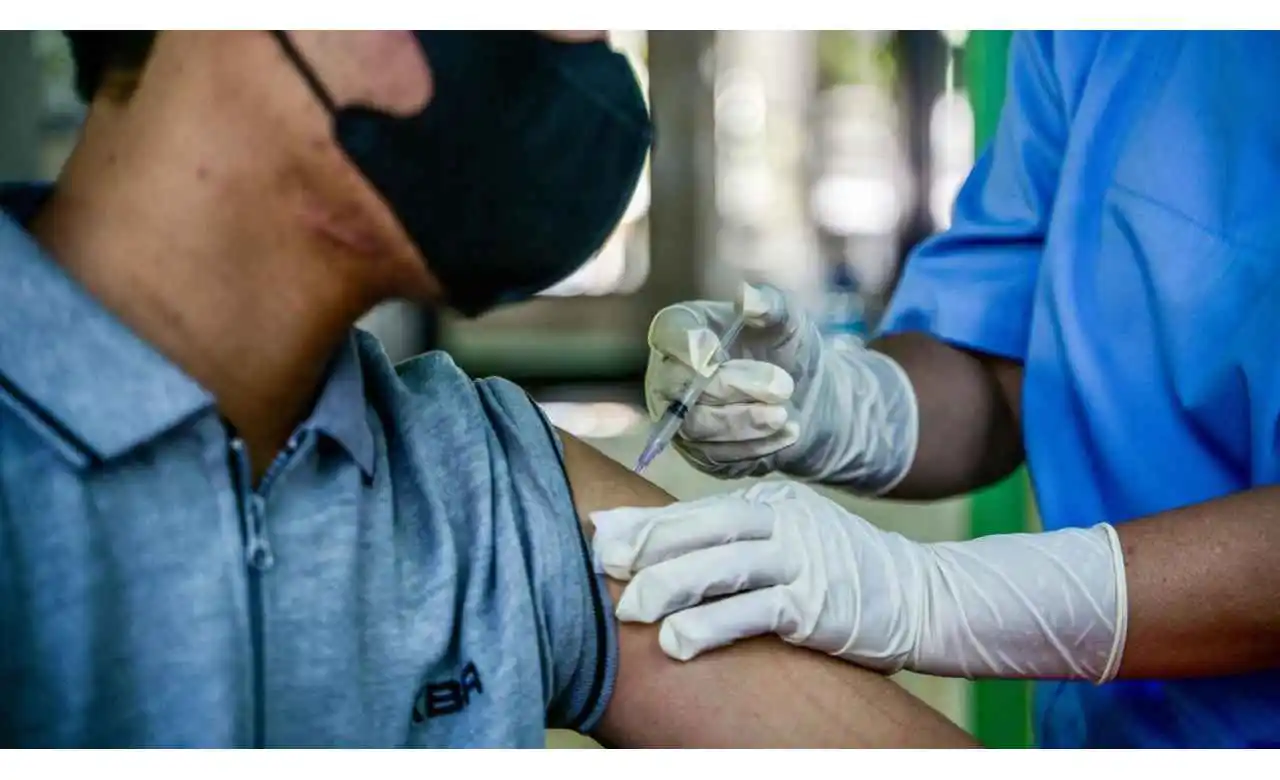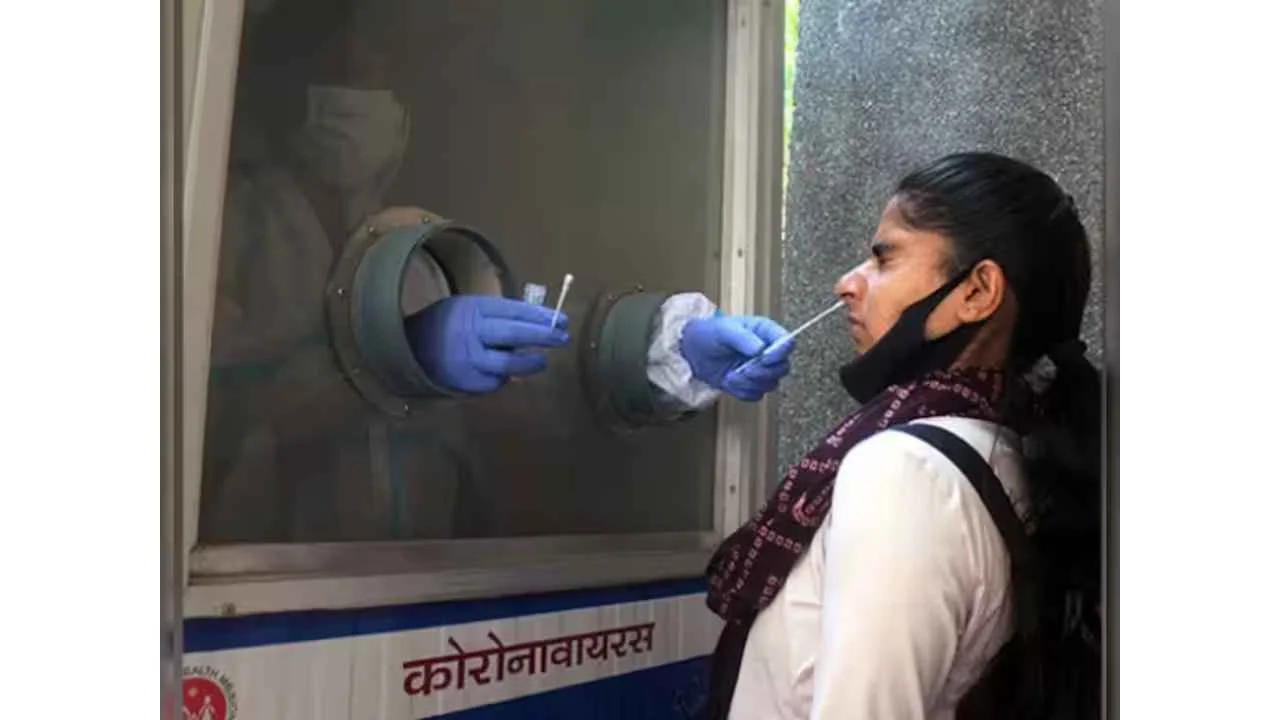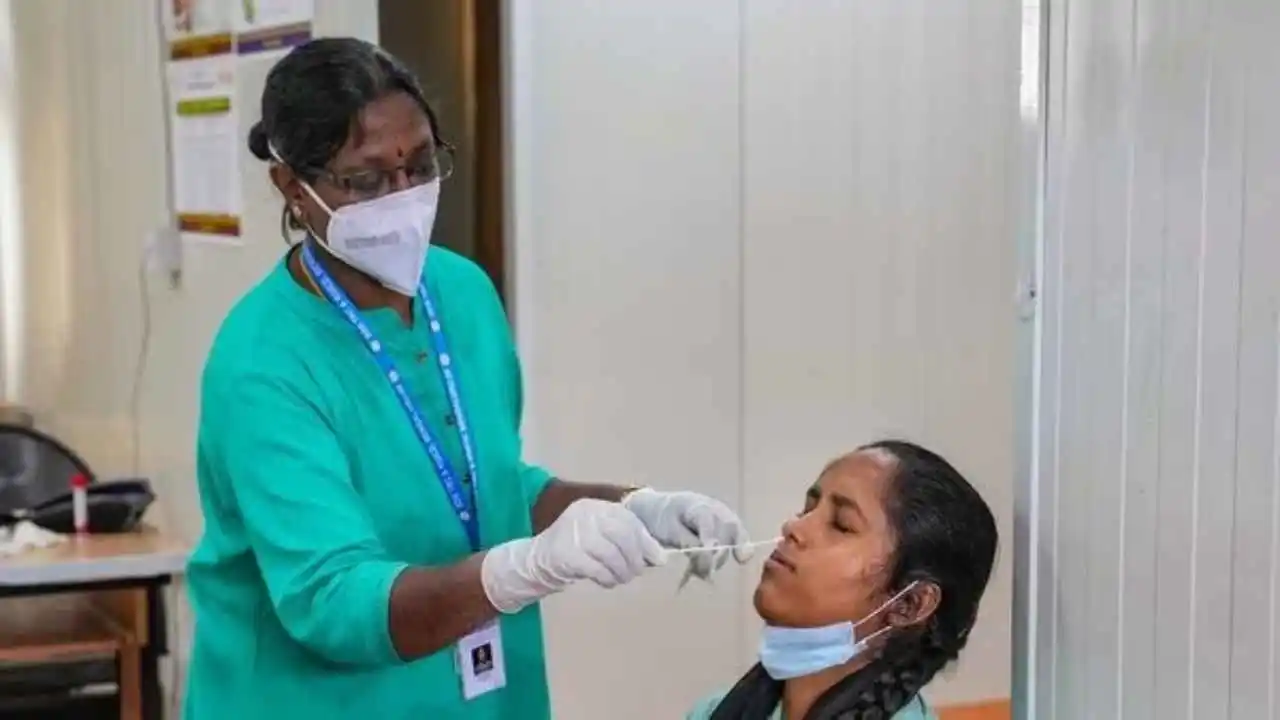Health
What is beta carotene? All you need to know about benefits, precautions and beta-carotene rich diet
There are numerous ways by which beta carotene can benefit human beings. It is a red-orange pigment that is found in fruits and vegetables. Here’s to know everything about it.

A red-orange pigment that is found in plants and fruits, especially in carrots and colourful vegetables is known as beta carotene. The word ‘beta’ comes from the Greek word beta and ‘carotene’ comes from the Latin work Carota. Basically, it is a yellow pigment that gives rich colours to fruits and vegetables.
Now let us reveal some interesting facts about beta carotene and why it is important to consume in our daily diet.
What are the benefits of taking beta carotene?
There are numerous ways by which beta carotene can benefit human beings. Following are the most important benefits of consuming beta carotene:
- Beta carotene keeps lung healthy
It has been proven that high blood beta carotene levels compensate for lung damage caused by oxygen-free radicals. It keeps our lungs healthy.
- Beta carotene is extremely benificial for eye health
Beta carotene is a nutrient that readily converts into vitamin A inside our body. Eating beta carotene helps in preventing eye diseases. Also, studies have shown that high blood levels of carotenoids reduce the risk of macular degeneration by up to 35 percent.
- Skin protection
Beta carotene is extremely beneficial for the skin. It has antioxidant properties that can help to maintain skin health and appearance. It also protects the skin against UV radiation from the sun.
Rich in Antioxidants
Beta carotene is rich in antioxidants. It is a property that inhibits the oxidation of other molecules. It protects the body from free radicals and lowers the risk of cancer and heart disease.
What are beta carotene-rich diets?
Orange, green leafy vegetables such as spinach, lettuce, sweet potatoes, broccoli, tomatoes, carrots are rich in beta carotene. Also, the more intense the colour of a fruit, the more it contains beta carotene.
What are the precautions while taking beta carotene?
Studies have found that the use of beta carotene has been associated with an increased risk of lung cancer in those people who smoke.
The use of beta-carotene has been associated with an increased risk of lung cancer in people who smoke or who have been diagnosed with asbestosis. Asbestosis is a chronic lung disease. It is caused by inhaling asbestos fibers. So, if you smoke or are exposed to asbestos, then you should not take a large amount of beta carotene supplements.
Health
India registers 313 new Covid cases, active cases reach 2,041, 3 deaths recorded in last 24 hours
The currently available data suggests that the JN.1 variant is neither leading to an exponential rise in the new cases nor a rise in the hospitalization and mortality.

India saw a single-day rise of 313 new Covid cases, while the active caseload has declined to 2,041, the health ministry said on Saturday. Three deaths: two from Karnataka and one from Maharashtra were reported in the last 24 hours.
According to the ministry website, the number of active cases in the country stood at 2,331 on Friday. The number of cases of Covid had dropped to double digits till December 5, but it began to start increasing after the emergence of a new variant and cold weather conditions.
According to reports after December 5, the highest single day rise of 841new cases was reported on December 31, 2023, which is 0.2% of the peak cases reported in May 2021. Of the total active cases, a large majority of these (around 92%) are recovering under home isolation.
The currently available data suggests that the JN.1 variant is neither leading to an exponential rise in the new cases nor a rise in the hospitalization and mortality. India has witnessed three waves of Covid in the past with its peak incidence of daily new cases and deaths being reported during the delta wave in April June 2021.
At its peak, 414,188 new cases and 3915 deaths were reported on May 7, 2021. Since the pandemic started in early 2020, there have have been 4.5 crore people who have got infected and this has resulted in the death of 5.3 lakh persons in a total time span of four years.
According to the ministry data, the total number of persons who have recuperated from the disease are 4.4 crore with total recovery rate recorded is 98.81%. A total number of 220.67 crore doses of Covid vaccines have been administered in India so far.
Health
India registers 605 new COVID-19 cases and 4 deaths in last 24 hours
The number of people who have recovered from the disease has gone up to 4,44,81,341, an increase of 648 since Sunday morning. In Kerala a 70 year-old male with chronic obstructive pulmonary disease (COPD) and 81year-old male with T2DM and HTN, and in Karnataka, a 48 year old male with CA and TB died, while one person in Tripura succumbed to COVID.

India recorded 605 fresh COVID-19 cases and four deaths in the last 24 hours. The active cases have increased to 4002, while India’s overall COVID case tally stands at over 4.5 crore (4,50,18,792). The death toll was recorded at 5,33,396 with four new deaths – two from Kerala and one each in Karnataka and Tripura – reported in the last 24 hours, the data updated at 8am stated.
The number of people who have recovered from the disease has gone up to 4,44,81,341, an increase of 648 since Sunday morning. In Kerala a 70 year-old male with chronic obstructive pulmonary disease (COPD) and 81year-old male with T2DM and HTN, and in Karnataka, a 48 year old male with CA and TB died, while one person in Tripura succumbed to COVID.
The Indian Council of Medical Research (ICMR) reported that 11,838 doses of the vaccine had been administered in the country till January 7. The data is a compilation of the Integrated Disease Surveillance Programme (National Centre for Disease Control), media bulletins and websites of various states at 8am on January 4.
As the winter season sets in, health experts are highlighting a sudden surge in viral infections, influenza, and COVID-19 cases. Dr Nikhil Modi, a senior pulmonologist at Indraprastha Apollo Hospital, pointed out that the decrease in temperature leads to increase in moisture in the air, low wind speed and also causes an increase in pollution levels. This contributes highly to various infections.
Due to the decrease in temperature the fog combines with the pollution in the air which further leads to the formation of smog. This condition of the atmosphere can cause different types of infections and difficulty in breathing. Both the state and the central government are keeping a close watch on the new Omicron Subvariant JN.1. J.N.1 is a Variant of Interest (VOI) which is under intense scientific scrutiny.
Health
India records 774 new Covid-19 cases, 2 deaths in 24 hours
The number of daily cases was in double digits till December 5 but it started to rise again amid cold weather conditions and after the emergence of new Covid-19 variant, JN.1.

India on Saturday had a single-day rise of 774 Covid cases while the number of active cases stood at 4,187, the Union health ministry said. As many as two deaths – one each from Tamil Nadu and Gujarat were reported in a span of 24 hours. Of the 4,187 active cases, the majority (over 92%) are recovering under home isolation.
The number of daily cases was in double digits till December 5 but it started to rise again amid cold weather conditions and after the emergence of new Covid-19 variant, JN.1. The central government has asked the state government and union territories to maintain a constant vigil amid an upward trend in the number of Covid-cases and the detection of the JN.1 sub variant in the country.
According to reports after December 5, the highest single-day rise of 841 cases was reported on December 31, 2023, which was 0.2% of the peak cases reported in May 2021. A health official said that the JN.1 variant is neither leading to an exponential rise in new cases nor a surge in hospitalisation and mortality in the country.
The Karnataka government has made the Covid test mandatory for those with Influenza like illness (ILI) or Severe Acute Respiratory Illness (SARI). Karnataka Health Minister Dinesh Gundu Rao said more than 7000 tests are being done every day and the COVID positivity rate is 3.82%. The positivity rate in the state has not come down yet.
He said those with symptoms are being monitored and tested. Those who are in isolation at home have been told to take extra care. He added it is expected that the trend of decreasing Covid cases may start next week in Karnataka. India has witnessed three waves of Covid-19 in the past with the peak incidence of daily cases and deaths being reported during the Delta wave during April-June 2021. At its peak 4,14,188 cases and 3915 deaths were reported on May 7, 2021.
-

 India News18 hours ago
India News18 hours agoKerala Governor Arif Mohammad Khan visits Ram Mandir in Ayodhya, bows down before idol of Ram Lalla
-

 Cricket news19 hours ago
Cricket news19 hours agoTravis Head’s 89, Abhishek Sharma’s 75 help chase down 166 runs to beat Lucknow Super Giants by 10 wickets
-

 2024 Lok Sabha Elections11 hours ago
2024 Lok Sabha Elections11 hours agoINDIA Bloc accuses Modi government of trying to create communal divide over EAC-PM paper on population
-

 India News17 hours ago
India News17 hours agoHD Kumaraswamy stands by HD Revanna amid kidnapping charges, demands accountability from Prajwal Revanna
-

 2024 Lok Sabha Elections12 hours ago
2024 Lok Sabha Elections12 hours agoAmit Shah says if BJP comes to power, it will increase reservation for SC, ST, OBC and will end Muslim quota
-

 Auto13 hours ago
Auto13 hours agoMaruti Suzuki Swift hatchback launched at Rs 6.49 lakh, check new design, features, safety

